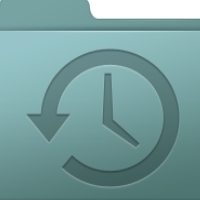
By Leo Notenboom
Virii & Spyware & Worms … oh my!
“Internet Safety” seems like an oxymoron.
It seems like not a day goes by where we don’t hear about some new kind of
threat aimed at wreaking havoc across machines connected to the internet. While
products other than Microsoft’s are certainly vulnerable, anti-Microsoft
sentiment coupled with the massive installed base make Microsoft products an irresistible target for hackers and “script kiddies”.
Here are some things you can, and should, do to stay safe.
- What’s a firewall, and how do
I set one up? - Do
I need a firewall, and if so, what kind? - So do I need SP2’s Windows
Firewall or not? - Viruses: How do I keep
myself safe from Viruses? - I run
Anti-Virus software why do I still sometimes get infected? - When do I actually need to run a virus scan?.
- Spyware: How do I remove and
avoid spyware? - What’s
the best Pop-Up Blocker? Anti-Virus Software? Anti-Spyware Software? - Is Microsoft’s
new Anti-Spyware program any good?.
Use a Firewall
A firewall is a piece of software or
hardware that sits between your computer and the internet and only allows
certain types of things to cross the wall. For example, a firewall may allow
checking email and browsing the web, but disallow things that are commonly not
as useful such as RPC or “Remote Procedure Calls”. In fact, it’s
vulnerabilities in RPC that allowed for one of the more recent worms to
propagate. (If you’re using a phone to dial-in to the internet, a firewall is
not as important, though it doesn’t hurt to have one. A software firewall may
be your only option, though.)
More:
Virus Scan
Sometimes, typically
via email, virii are able to cross the wall and end up on your computer anyway.
A virus scanner will locate and remove them from your hard disk. A real
time virus scanner will notice them as they arrive, even before they hit
the disk, but at the cost of slowing down your machine a little.
Important: because new virii are arriving every day, it’s
important to keep your virus definitions up-to-date. Be sure to enable the
scanning software’s automatic-update feature and have it do so every
day.
More:
Kill Spyware
Spyware is similar
to virii in that they arrive unexpected and unannounced and proceed to do
something undesired. Normally spyware is relatively benign from a safety
perspective, but it can violate your privacy by tracking the web sites you
visit, or add “features” to your system that you didn’t ask for. The worst
offenders are spyware that hijack normal functions for themselves. For example,
some like to redirect your web searches to other sites to try and sell you
something. Of course some spyware is so poorly written that it might as well
be a virus, given how unstable it can make your system. The good news
is that, like virus scanners, there are spyware scanners that will locate and
remove the offending software.
More:
FaceBook URL: Leo’s Facebook
Twitter URL: http://twitter.com/askleo



